<< Previous | Displaying results 6501-6525 of 6769 for "" | Next >>
March 14, 1938. Days after Nazi Germany annexed Austria, Churchill delivered a warning about German aggression.
September 15, 1938. On this date, British Prime Minister Neville Chamberlain met with Hitler at the German leader’s home in Berchtesgaden.

Adolf Hitler authorized the murder of people with disabilities sometime in autumn 1939 but backdated the order to the start of World War II.
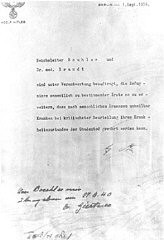
March 5, 1946. On this date, Winston Churchill delivered his postwar “Iron Curtain” speech.
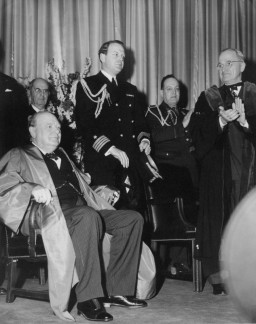
March 11, 1941. On this date, the Lend-Lease Act passed in Congress, allowing the United States to send material aid to the Allies prior to entering World War II.
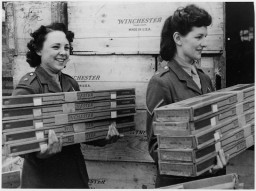
September 17, 1945. On this date, the Belsen Trial began. Forty-five defendants were charged for crimes committed at the Bergen-Belsen concentration camp.
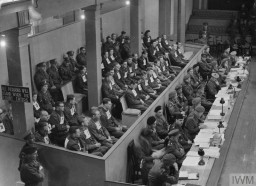
October 5, 1938. On this date, Winston Churchill delivered a speech denouncing the Munich Agreement.
September 7, 1940. On this date, Germany initiated the Blitz, a bombing campaign against Britain.
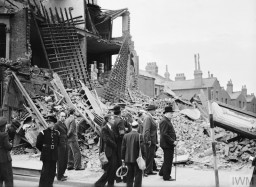
September 30, 1938. On this date, Neville Chamberlain addressed the public after signing the Munich Agreement, proclaiming "I believe it is peace for our time."
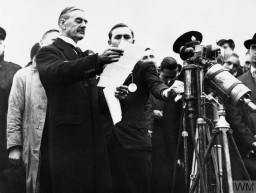
August 18, 1939. On this date, German officials ordered the registration of infants and toddlers showing signs of mental or physical disabilities.
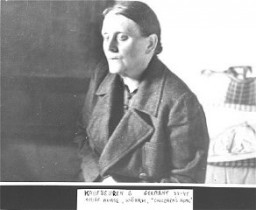
May 10, 1940. On this date, Winston Churchill succeeded Neville Chamberlain as British prime minister.
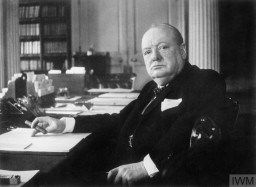
May 1940. Approximately 338,000 Allied troops evacuate Dunkirk with the help of British ships and boats.
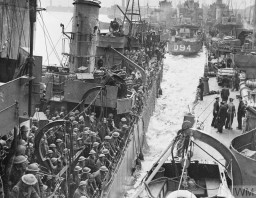
July 10, 1940. On this date, Germany and Britain began fighting for air control of the English Channel in the Battle of Britain.

August 14, 1941. On this date, President Roosevelt and Prime Minister Churchill issued the Atlantic Charter establishing postwar priorities.
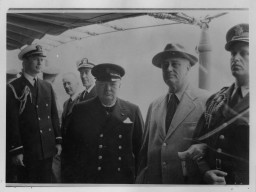
October 30, 1943. On this date, the United States, Great Britain, and the Soviet Union signed the Moscow Declaration during the Third Moscow Conference.

Listen to excerpts from oral testimonies to learn from survivors themselves about their individuals experiences, actions, and choices.
Explore a timeline of events that occurred before, during, and after the Holocaust.
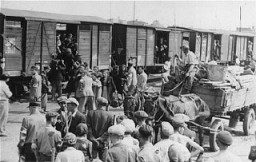
Hitler's political opponents were the first victims of systematic Nazi persecution. They were incarcerated without trial and under conditions of great cruelty.
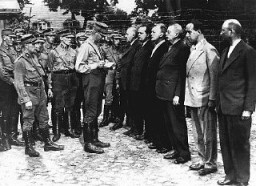
Learn about the origins and legacy of Pastor Martin Niemöller's famous postwar words, “First they came for the socialists, and I did not speak out…”
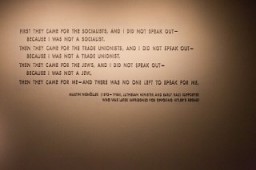
Hitler rose to power during a time of economic and political instability in Germany. Learn more about how and when Hitler came to power.
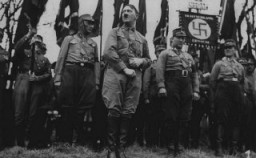
Is the “Final Solution” the same as the Holocaust? Did the Nazis always plan to murder the Jews? Learn the answer to these and other questions about the Nazi “Final Solution.”
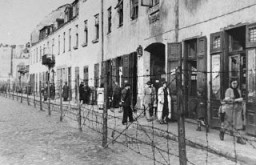
The SS established the Sachsenhausen concentration camp as the principal concentration camp for the Berlin area. Located near Oranienburg, north of Berlin, the Sachsenhausen camp opened on July 12, 1936.
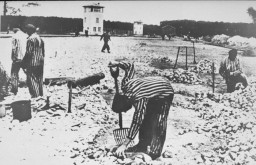
A group of young German boys view Der Stuermer, Die Woche, and other propaganda posters that are posted on a fence in Berlin, Germany, 1937.
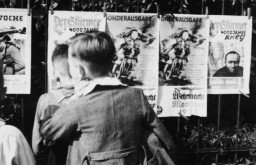
American residents of Japanese ancestry wait with their luggage for transportation during relocation, San Francisco, California, April 6, 1942.
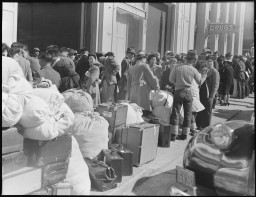
Tatsuro Matsuda, whose family owned the Wanto Co. grocery store, hung this sign in front of the store, Oakland, California, March 1942. The store was closed following orders for the evacuation of Americans of Japanese ancestry. Evacuees were forcibly deported to relocation centers.

We would like to thank Crown Family Philanthropies, Abe and Ida Cooper Foundation, the Claims Conference, EVZ, and BMF for supporting the ongoing work to create content and resources for the Holocaust Encyclopedia. View the list of donor acknowledgement.